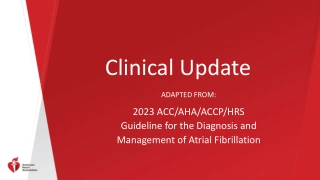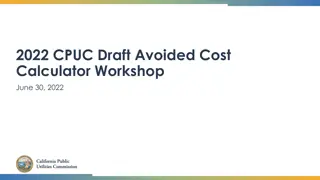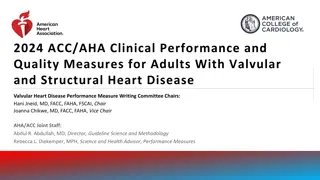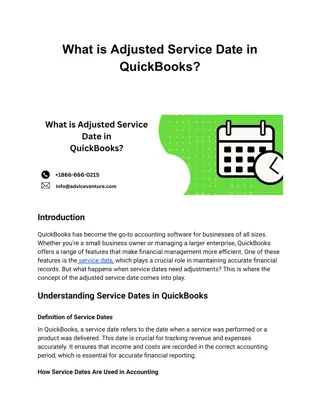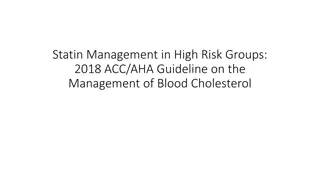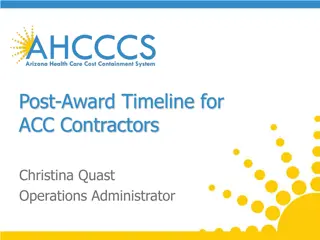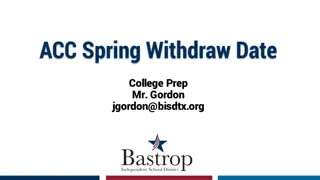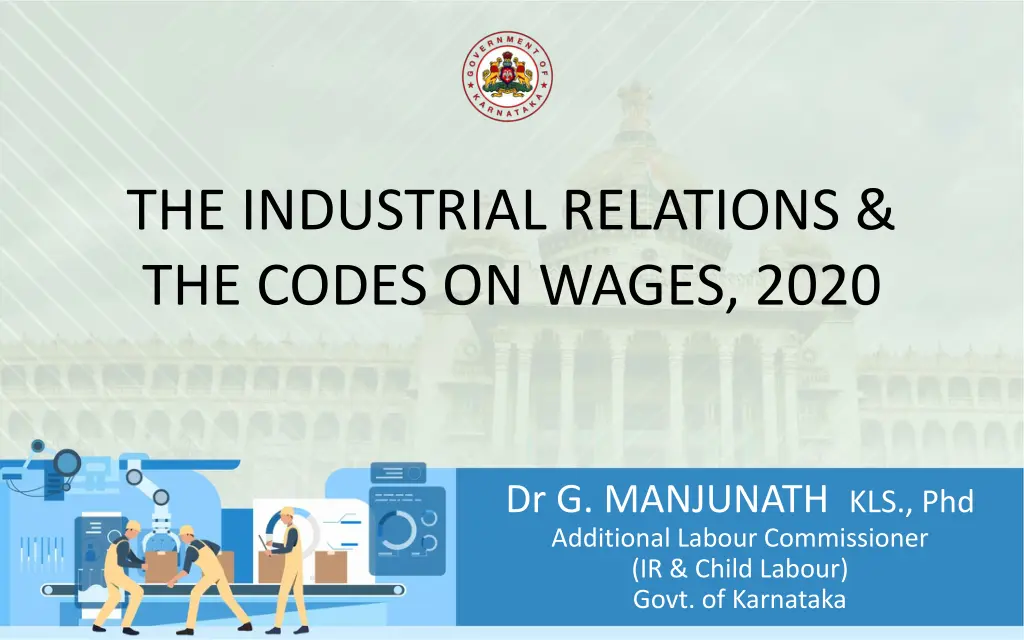
Industrial Relations Codes 2020: Amendments and Definitions Overview
Explore the key definitions and amendments introduced in the Industrial Relations Codes of 2020, covering aspects such as employee-employer relations, industrial disputes, wages, and grievance redressal. Gain insights on the regulatory changes impacting trade unions, employment conditions, and resolution procedures in industrial settings.
Uploaded on | 2 Views
Download Presentation

Please find below an Image/Link to download the presentation.
The content on the website is provided AS IS for your information and personal use only. It may not be sold, licensed, or shared on other websites without obtaining consent from the author. If you encounter any issues during the download, it is possible that the publisher has removed the file from their server.
You are allowed to download the files provided on this website for personal or commercial use, subject to the condition that they are used lawfully. All files are the property of their respective owners.
The content on the website is provided AS IS for your information and personal use only. It may not be sold, licensed, or shared on other websites without obtaining consent from the author.
E N D
Presentation Transcript
THE INDUSTRIAL RELATIONS & THE CODES ON WAGES, 2020 Dr G. MANJUNATH KLS., Phd Additional Labour Commissioner (IR & Child Labour) Govt. of Karnataka
The Industrial Relations Codes, 2020 An Act of Parliament received the assent of the President on 28thSep 2020 to consolidate & amend laws relating to: Trade Unions; Conditions of employment in industrial establishment or undertaking; Investigation & settlement of industrial disputes & for matter connected therewith or incidental thereto. 2
Definitions: S 2(l) employee introduced for the first time S 2(m) employer Definition is enlarged & includes for the first time: Contractor; Legal reps of a deceased employer. S 2(o) Fixed term employment introduced for the first time & important 3 provisos are provided. S 2(p) industry elaborate & given effect in the code which was pending since 1982. Inclusion (a) & (b) removed Exclusion out of 9 items in the original ID act only 3 finds its place, most important exclusion is domestic service, however CG has powers to exclude any other activity. 3
S 2(q) industrial dispute definition enlarged & now includes Sec 2-A-(of ID Act) individual dismissal & others in the definition itself. S 2(z) negotiating union or negotiating council newly introduced & significantly important. S 2(zh) retrenchment definition now includes FTE S 2(zk) strike definition expanded & now includes concerted casual leave S 2(zm) Trade union dispute newly introduced, significantly important trade dispute removed. 4
S 2(zq) wages, same as in code on wages, newer interpretation, 11 items are excluded. S 2(zr) worker defined for the first time, instead of workman. (excludes apprentices as defined under AA) & includes: working journalists; sales promotion employees; workers who are terminated; supervisory workers drawing more than 18 k are excluded 5
Grievance Redressal Committee Setting up of GRM Very significant changes 11 sub-sections under the code instead of 8 No of members is now 10, earlier 6. Aggrieved Worker with individual grievance may file an application before GRC within one year from the date of cause of action of such dispute GRC to conduct its proceedings within 30 days Decision making process is explained in detail. Worker can seek an appeal if not satisfied with the decision of the GRC, within 60 days & file an application before the conciliation officer through the Trade Union. A worker can also directly approach Tribunal for adjudication of the dispute after the expiry of 45 days from the date he has made an application to the conciliation officer. 6
Dismissal etc of an individual worker to be deemed to be an industrial dispute Significant changes Time limit to raise an industrial dispute of an individual worker is now 2 years only. 7
Application for registration, alteration of Trade Union Significant changes Electronic application A declaration to be made by an affidavit Copy of the resolution authorizing the applicant to make an application. Resolution regarding agreeing to constitute a federation or a central organisation of Trade Unions 8
Registration of Trade Union and cancellation Registration & Certificate. Significant changes Status of existing Trade Unions mentioned in clause (4) with proviso. Fraud or mistake, or ceased to exist not shown in the code. Cancellation of Trade Union allowed if Tribunal orders so. Speaking orders essential for cancellation 9
Appeal against non-registration or cancellation of registration Appeal Very significant changes Tribunal is the only authority for appeal under the code. Earlier it was High court as well as Labour court or IT. 10
Communication to Trade Union and change in its registration particulars Registered office Very significant changes Under the code trade union to inform the registrar if the members fall below 10 percent of total workers or 100 workers whichever is less . Responsibility is fixed with the Trade Unions 11
Recognizing of negotiating union or negotiating council Very very significant changes Matters for negotiation to be prescribed. If only one TU is registered then the employer shall recognize such TU as a sole negotiating union, criteria will be prescribed. More than one TU 51% or more workers supporting to be verified in such manner as prescribed. More than one TU but less than 51%, employer to constitute a NC consisting of reps from registered TUs having not less than 20% of support from workers Statutory responsibility is on the employers. 3 years of recognition, but extendable up to 5 years if mutually decided. Facilities to be extended by the employer to the NU or NC. 12
Adjudication of disputes of Trade Unions Very very significant changes Newly included in code IMPACT 13
Recognition of Trade Unions at Central and State level Very Significant changes Newly included in the code Manner of recognizing central trade unions and state trade unions. Manner to be prescribed 14
STANDING ORDERS Substantial changes Code applies this chapter to 300 or more workers & Act for 100, (50, in Karnataka). Proviso providing power to the app. Govt to reduce the number of workers is withdrawn. Sub-section (2) added for exclusions under the code 15
Model standing orders by Central Govt. and temporary application Central Govt. to make model standing orders under this section. Deemed applicability of model standing orders 16
Procedure for certification Substantial changes Employer to consult TUs or recognized NU or member of the NC. Reps of workmen removed. Electronic submission allowed Model standing shall be deemed to be certified & employer shall forward this to the CO. CO to issue notice not forwarding the copy. CO to seek comments, not objections. Time frame fixed for certification process, ie 2 months, otherwise it will be deemed certified. Joint submission of standing orders allowed. 17
Time-limit for completing disciplinary proceedings & liability to pay subsistence allowance Substantial changes Time-frame fixed at 90 days to complete investigation or enquiry. Disputes regarding subsistence allowance removed. 18
Industrial Tribunal Substantial changes Schedules removed under the code One person is replaced now by two members one Judicial and Administrative Member. Cases to be decided by IT by both the members are provided under sub-section (7)(i) to (e). Other cases to be decided by either JM or AM. 19
Decision of Tribunal or NT Decision by consensus, if differences of opinion occurs such points shall be refered to app. Govt. App. Govt has a tasks under sub-section (3) IMPACT 20
Conciliation and adjudication of dispute Substantial changes Under the code no notice of strike/lockout under PUS Time limit to file an industrial dispute is two years. Failure report to be sent to the Govt. as well as to the parties concerned. Report to be sent within 45 days, earlier 14 days removed. Proviso for sending report under sec. 62 is 14 days. 53(6) is new inclusion Either parties can approach the Tribunal directly within 90 days on matters not settled 21
Form of award, its communication & commencement Substantial changes Award may be signed electronically. No dissent possible under the code. Publication not required. Award to be sent to concerned parties & the app. Govt directly by Tribunal. Award enforceable from expiry of 30 days of communication to the parties. 22
Commencement and conclusion of proceedings Substantial changes Commencement of conciliation proceedings under the code is on the date of the first meeting held by the conciliation officer. Conclusion of conciliation proceedings is on the date of failure of conciliation recorded by the CO deviation from the Act. 23
Prohibition of strikes and lockouts Substantial changes Public Utility Services deleted Six weeks notice replaced by 60 days before striking or lockout. Sub-sections (e), (f) & (g) added 24
SPECIAL PROVISIONS RELATING TO LAY- OFF, RETRENCHMENT & CLOSURE IN CERTAIN ESTABLISHMENTS Substantial changes Number of workers increased from 100 to 300 under the code. App. Govt may notify such higher numbers of workers than 300. 25
Worker re-skilling fund NEWLY INTRODUCED 26
Power of officers of app. Govt. to impose penalty in certain cases Substantial changes App. Govt. to appoint officer not below the rank of US to the GOI or an officer of equivalent rank in the SG to hold enquiry in the manner prescribed by the CG Procedures & powers provided under the code Failure to pay penalty shall be punishable with fine extending up to 2 lakhs. Penalties shall be imposed for the following contraventions 86(3),86(5),86(7),86(8),86(9) 86(10),86(11),86(20) & 89(7) 27
Composition of offences Newly introduced in the code App. Govt to appoint a Gazetted Officer to compound the offence. 50% & 75% of maximum fine Such amount to be credited to SSF under SS code 2020 28
Repeal and savings All the three enactments will be repealed once the code is commenced 29
THE CODES ON WAGES, 2020 An Act of Parliament received the assent of the President on 8th Aug 2019 to consolidate & amend laws relating to: wages; (MW act & PW act) Bonus (of course Equal remuneration) 30
Definitions Contractor newly introduced in relation to an establishment, means a person, who- (i) Undertakes to produce a given result for the establishment, other than a mere supply of goods or articles of manufacture to such establishment, through contract labour; or (ii) Supplies contract labour for an work of the establishment as mere human resource and includes a sub-contractor; 31
Contract labour means a worker who shall be deemed to be employed in or in connection with the work of an establishment when he is hired in or in connection with such work by or through a contractor, with or without the knowledge of the principal employer and includes inter-State migrant worker but does not include a worker (other than part-time employee) who- (i) is regularly employed by the contractor for any activity of his establishment and his employment is governed by mutually accepted standards of the conditions of employment (including engagement on permanent basis), and (ii) gets periodical increment in the pay, social security coverage and other welfare benefits in accordance with the law for the time being in force in such employment. 32
Employee definition is completely different from: 2(i) under Minimum wages Act 2(13) under Payment of Bonus Act 2(i-a) under Payment of Wages Act (Employed Person) 33
Employee means, any person (other than an apprentice engaged under the Apprentices Act, 1961) employed on wages by an establishment to do any skilled, semi- skilled, manual, operational, administrative, technical or clerical work for hire or reward, whether the terms of employment be express or implied, and also includes a person declared to be an employee by the appropriate Government, but does not include any member of the Armed Forces of the Union; supervisory, managerial, 34
Employer means a person who employs one or more employees in his establishment either directly or through any person In case of CG/SG, the Head of the dept or the authority so specified; In case of local authority, the chief executive; In case of a factory, the occupier and the manager; In case of any other establishments, the person who has ultimate control over the affairs of the establishment and manager, or MD, if such affairs is entrusted to them Contractor Legal representative of a deceased employer 35
Industrial dispute newly introduced in the wages code The definition is very similar to that in the IR Codes. industrialdispute means- (i) any dispute or difference between employers and employers, or between employers and workers or between workers and workers which is connected with the employment or non-employment or the terms of employment or with the conditions of labour, of any person; and (ii) any dispute or difference between an individual worker and an employer connected with, or arising out of, discharge, dismissal, retrenchment or termination of such worker. 36
wages means all remuneration whether by way of salary, allowances or otherwise, expressed in terms of money or capable of being so expressed which would, if the terms of employment, express or implied, were fulfilled, be payable to a person employed in respect of his employment or of work done in such employment, and includes,- (i) basic pay (ii) dearness allowance; and (iii) retaining allowance, if any, 37
but does not include- any bonus payable under any law for the time being in force, which does not form part of the remuneration payable under the terms of employment; the value of any house -accommodation, or of any supply of light, water, medical attendance or other amenity or of any service excluded from the computation of wages by general or special order of the appropriate Government; any contribution paid by the employer to any pension or provident fund, and the interest which may have accrued thereon; any conveyance allowance or the value of any travelling concession; 5/3/2025 38
any sum paid to the employed person to defray special expenses entailed on him by the nature of his employment; house rent allowance; remuneration payable under any award or settlement between the parties or order of a court or Tribunal; any overtime allowance; any commission payable to the employee; any gratuity payable on the termination of employment; any retrenchment compensation or other retirement benefit payable to the employee or any ex gratia payment made to him on the termination of employment: 39
Provided that, for calculating the wages under this clause, if payments made by the employer to the employee under clauses (a) to (i) exceeds one-half or such other percent, as may be notified by the Central Government, of the all remuneration calculated under this clause, the amount which exceeds such one half, or the percent, so notified, shall be deemed as remuneration and shall be accordingly added in wages under this clause: Provided further that for the purpose of equal wages to all genders and for the purpose of payment of wages, the emoluments specified in clauses (d), (f), (g) and (h) shall be taken for computation of wage. Explanation,- Where an employee is given in lieu of the whole or part of the wages payable to him, any remuneration in kind by his employer, the value of such remuneration in kind which does not exceed fifteen per cent, of the total wages payable to him, shall be deemed to form part of the wages of such employee; 40
worker means any person (except an apprentice as defined under clause (aa) of section 2 of the Apprentices Act, 1961) employed in any industry to do any manual, unskilled, skilled, technical, operational, clerical or supervisory work for hire or reward, whether the terms of employment be express or implied, and includes- (i) working journalists (ii) sales promotions employees 41
but does not include any such person- who is subject to the Air Force Act, 1950, or the Army Act, 1950, or the Navy Act, 1957; or who is employed in the police service or as an officer or other employee of a prison; or who is employed mainly in a managerial or administrative capacity; or who is employed in a supervisory capacity drawing wage of exceeding fifteen thousand rupees per month or an amount as may be notified by the Central Government from time to time. 42
Substantial compliance under the Code Shall NOT discriminate among employees on the ground of gender with regard to wages in respect of the same work or work of a similar nature For the above purpose shall NOT reduce the rate of wages of any employee. Shall NOT make any discrimination on the ground of sex while recruiting any employee for the same work or work of similar nature and also in the conditions of employment. 43
shall NOT pay to any employee wages less than the minimum rate of wages Shall pay overtime rate which is twice the normal rate of wages Shall pay wages payable within two working days of removal, dismissal, resignation of an employee Govt. has powers to extend time limit retrenchment or 44
deduction from wages only in accordance with the provisions of the code and only for the purposes mentioned. Shall NOT commit any default after deducting from the wages and not depositing in the account of the trust or Government fund Shall NOT impose any fine on any employee without the previous approval of the App Govt. or of such authority prescribed. 45
Shall PAY to every employee drawing the prescribed wages and who has put in at least 30 days of work an annual minimum bonus at the rate of 8.33% of the wages earned, whether or not the employer has any allocable surplus during the previous accounting year. Bonus shall be paid by crediting it in the bank account within a period of eight months from the close of the accounting year. (Provi for time extension) Shall PAY all amounts required to be paid under this Code to every employee employed by him. (43) 46
Procedural compliance Every employer to whom this code applies shall maintain: A register containing the details of persons employed Muster roll Wages and such other details in the prescribed manner Display notice of the abstract of the code, category-wise wage rates of employees, wage period, day and date and time of payment of wages Issue wage slips in the manner prescribed The names and addresses of the Inspector-cum Facilitator having jurisdiction 47
Penalties Substantial violation like paying less than the amount due to any employee -Employer Punishable with fine up to Rs 50,000; Repeated offence within five years punishable with imprisonment for a term up to 3 months or with fine up to Rs one lakh; Contravenes any provision, rules, order made punishable with fine up to Rs 20,000; Repeated offence within five years punishable with imprisonment for a term up to one month or fine up to Rs 40,000 or with both; For Procedural violation For Non-maintenance or improper records, punishable with fine up to Rs 10,000 48
Compounding of Offence An offence not being an substantial offence- the code provides for compounding of offence Gazetted Officer will have powers to levy a sum 50% of maximum fine provided for such offence No prosecution can be proceeded if an offence is been compounded and any pending procedure before any court, intimation has to be given by the Gazetted officer and the employer may be discharged 49
Burden of Proof When a claim is made before any authority against the employer for: Non-payment of equal remuneration Non-payment of bonus Less payment of wages Less payment of bonus Making un-authorized deductions from the wages of an employee Then the burden of prove that the said dues have been paid shall be on the Employer. 50


